At first glance, the San Francisco Green Festival appears to be more of a circus than a community gathering. One passerby loudly exclaims that it looks like a street bazaar. Underneath the veil of scattered cubicles, noisy crowds and vendor sales, there is an underlying message of community, diversity and new ideas. For two days the marketplace and consumers converge, exploring and challenging the current ideologies of consumption and consumerism, enlightening and altering their way of thinking that could change the way we bathe, eat, get news, dress, and interact.
“The festival made me more aware of how much I waste and inspired me to reduce that, I also use cloth bags much more frequently, and I found a way to recycle my ink cartridges from my computer,” says SF State student Marissa Brun, 25. “It inspired me to waste less in terms of bagging and packaging and turned me on to natural alternatives to processed foods.”
Everything about the event inspires a change in thought, even the way you purchase admission. They provide discounts to students and free admission for those who engage in sustainable practices. For instance, volunteering at the event, donating unused canned goods, using public transportation, riding a bike, supporting local grocery or even checking out the latest in automobile technology can get you a discount or free admission.
Entering the food tent, you become consumed by the smell of sizzling vegan sausages, toasted Panini filled with mushrooms, avocado and spinach, spicy Indian curries with sticky coconut rice, and the steamy smell of folded savory crepes. Offering vegan and sometimes raw cuisine, food vendors are smiling and always busy with hungry bellies to feed. This year they featured local, organic and vegan wines and beer which were sampled inside the tasting tent.
In cubicles scattered throughout the convention center vendors offer their products and services with warm smiles, eager to converse. Surprisingly profit is not the priority, at least for those two days, the gathering is about education. Displayed are products most consumers never consider that can benefit society and commerce. The underlying message of the event is reduce, reuse and recycle, eliminating waste.
America is a society of over-consumption, the consequences of which are pollution, toxic waste and garbage. No one can undo the damage of our consumer lifestyles but we can transform our current way of living to be more sustainable, aware and connected to community and the earth, hopefully preventing future damage to ourselves. The earth and humans are linked. The whole idea of throwing away waste is an illusion, because it never leaves, it stays on the earth just as we do, “a closed system”.
For ten years Green America and Global Exchange have brought the Green Festival to cities across the nation. Their goal is to initiate dialogue, inspire change among businesses, and educate residential communities about sustainability and environmental impact. Green America connects the market with consumers to create a socially responsible economy. On their website they provide a list of environmentally conscious businesses. Global Exchange is a human-interest organization that promotes an international economy where workers, consumers and the environment are considered before profit. They help people all over the world with green business ideas start up their trade. The festival extensively screens every vendor, business, and presenter to demonstrate that they make a significant commitment to community and the environment.
Looking beyond profit, most vendors sell items that are beneficial to the consumer and the environment. Mr. Ellie Pooh, one of the vendors, is a company that sells paper made from elephant poo. The paper is sterilized, odorless, durable, organic and sustainable. According to mrelliepooh.com, elephants in Sri Lanka (a country off the southern coast of India) are killed at alarming rates to make room for human needs, like agriculture. Mr. Ellie Pooh opened their factories in rural areas, where they train and hire locals, which supports the community economy and inspires the natives to value the elephants. Using poo paper may sound extreme, but moving away from paper products, which require the loss of trees and accumulation of garbage, is a sustainable alternative.
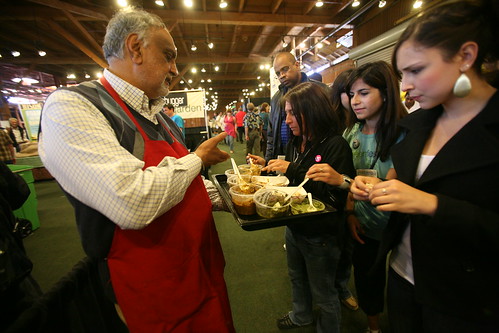 Konjacu, a Japanese vendor that sells skincare products, brings a way to bathe without the use of soaps. Their veggie sponges are an interesting alternative to the polluting toxic chemicals that are in most skincare products. According to konjacu.com, their sponges clean better and safer than most store bought brands and are completely biodegradable, and can even be used on children.
Konjacu, a Japanese vendor that sells skincare products, brings a way to bathe without the use of soaps. Their veggie sponges are an interesting alternative to the polluting toxic chemicals that are in most skincare products. According to konjacu.com, their sponges clean better and safer than most store bought brands and are completely biodegradable, and can even be used on children.
“I liked the way the vendors showed alternatives to products that are not good for the environment or for our bodies, such as coconut sugar as an alternative to cane sugar and hemp as an alternative to cotton,” says Pacifica resident Jason Crist, 24. “I appreciated the information that was available for each cause and item. It was fun to be around so many earth friendly people who shared the same mindset.”
Lecturers from the SF community and the nation spoke throughout the day. The speakers are deeply involved in sustainable business, community and politics. Supervisor Ross Mirkarimi spoke in the Community Action Pavilion about plans for a greener and more sustainable community. Mirkarimi was the first to propose and successfully ban plastic bag use in businesses, setting a standard for communities in the Bay Area.
SF State Geography and Human Environmental Studies Professor, Huia Richard Hutton, found the Community Action Pavilion inspiring. Hutton thought seeing people’s ideas and creativity put into action through grassroots social movements was exhilarating. “Seeing ordinary people with their big ideas and creative forces put into practice is beautiful.”
Colleen Patrick-Goudreau, author of “The Vegan Table” stood in a booth surrounded by fans and vegan newbies. Deemed “the vegan Martha Stewart,” Goudreau welcomed guests with warm smiles and enthusiastic encouragement. When a girl commented that she was new to veganism, Goudreau praised her exploration and gave her some pointers.
With any gathering of idealists, the festival attracts some egotistical personalities pushing their agendas. Some attendees thought the event reminded them of a mini-mall and that the vendors were a bit pushy. Crist says, “Some vendors seemed slightly arrogant in their way of living and imposed a lot of guilt on consumers. Maybe there could be more activities to create a more hands-on experience and less of a pressure to buy products.”
Despite some negative sentiments, the festival provides an outlet for the community and a place of expression for students. “Seeing all the youth volunteers at the festival shines a positive light on the community,” Hutton says.
Hutton teaches the class, Environmental Problems and Solutions, at SF State, a course that challenges students to make connections within themselves and their environment by thinking holistically. We are so easily distracted by static created by technology, consumption, and image we forget about the larger more significant issues in our lives. It is a course that can change the way you think, consume and act.
One of the most important things a student can do to become more connected is to make time for mental space. “Mental space provides a chance to have deeper conversations with yourself, to hear yourself think and to be observant,” Hutton says.
The festival is, in a way, a gathering of individuals who have had that deeper conversation within, and are able to share some of that knowledge with the community.
“Students should attend the green festival to learn that there are other ways of doing everyday things that can reduce waste and actually help the environment, rather than hurt it,” Brun says. “I think students are unaware of the harm they cause most of the time and don’t know where to find information to understand the importance of our consumption patterns. Students are already in the mindset of learning and therefore are more likely to absorb the information and share it with their friends.”


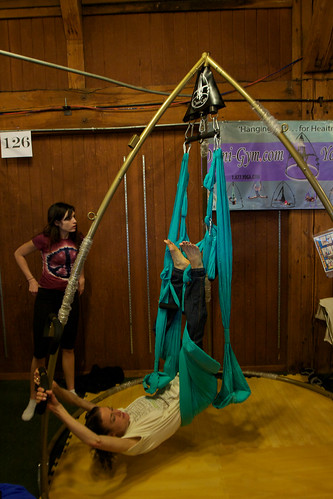
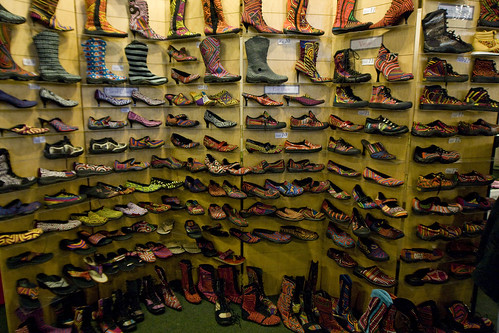
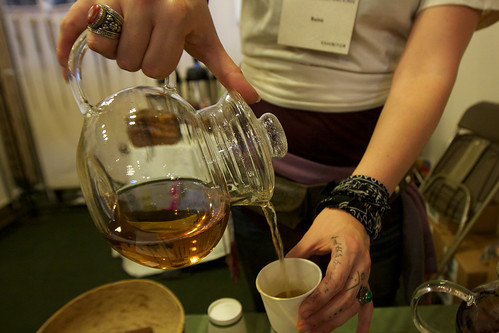
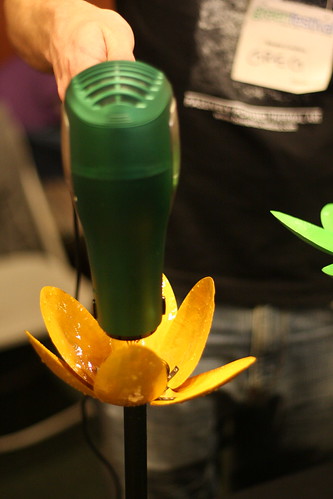
http://www.mexicocrece.mx/blog/long-sleeve-designer-gowns-are-dark-are-just-ideal-winters • Jul 12, 2014 at 7:25 am
Great beat ! I would like to apprentice while you amend your website,
how can i subscribe for a blog site? The account helped me a
acceptable deal. I had been tiny bit acquainted
of this your broadcast offered bright clear concept